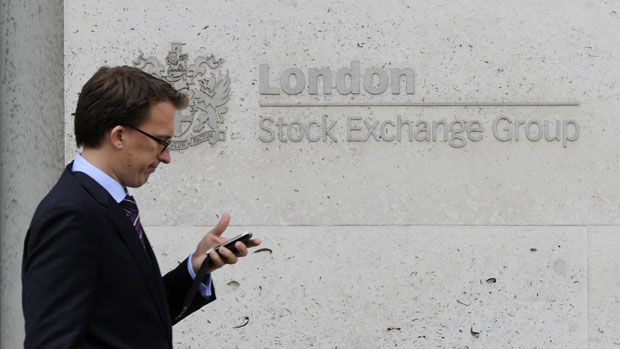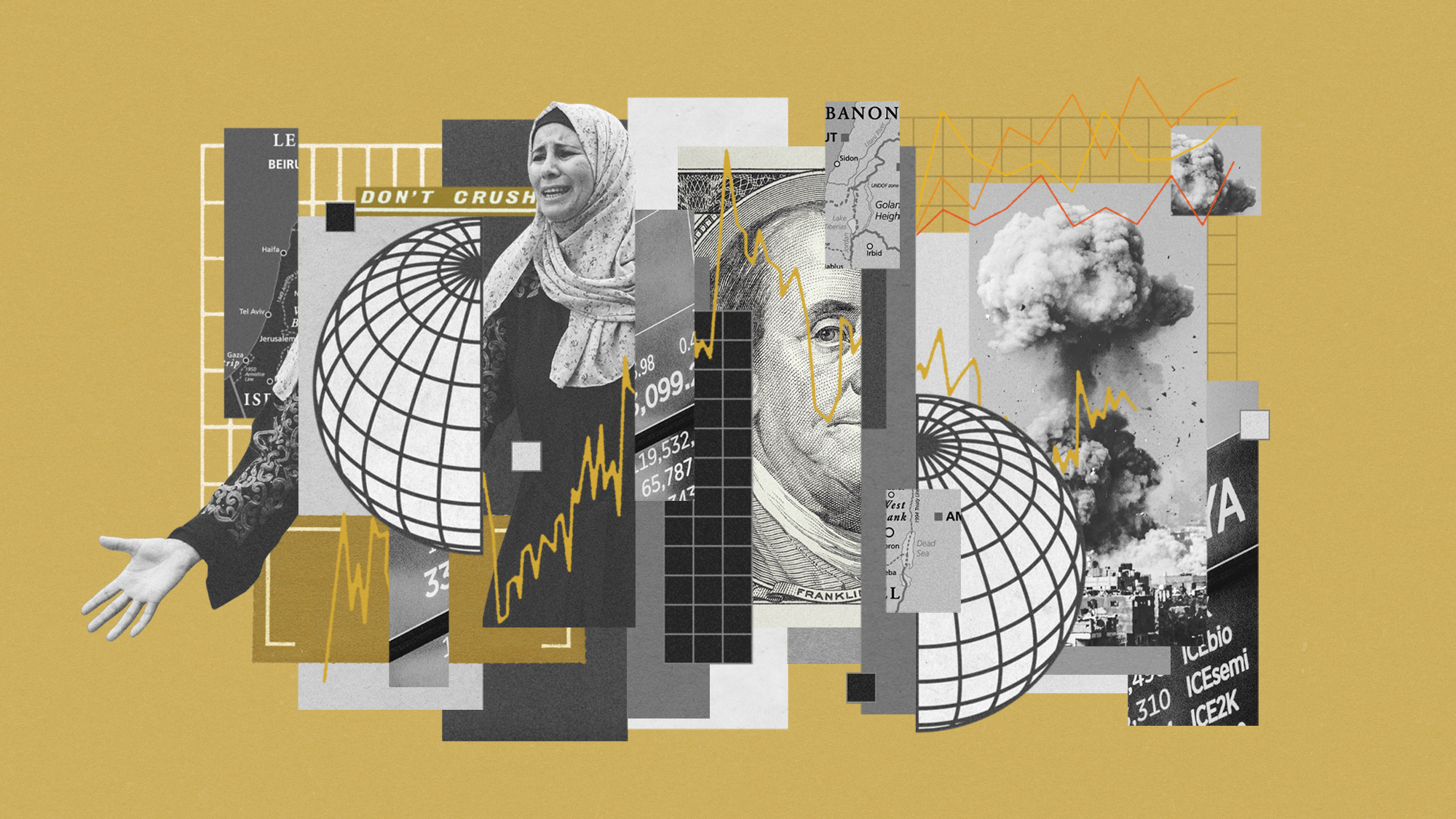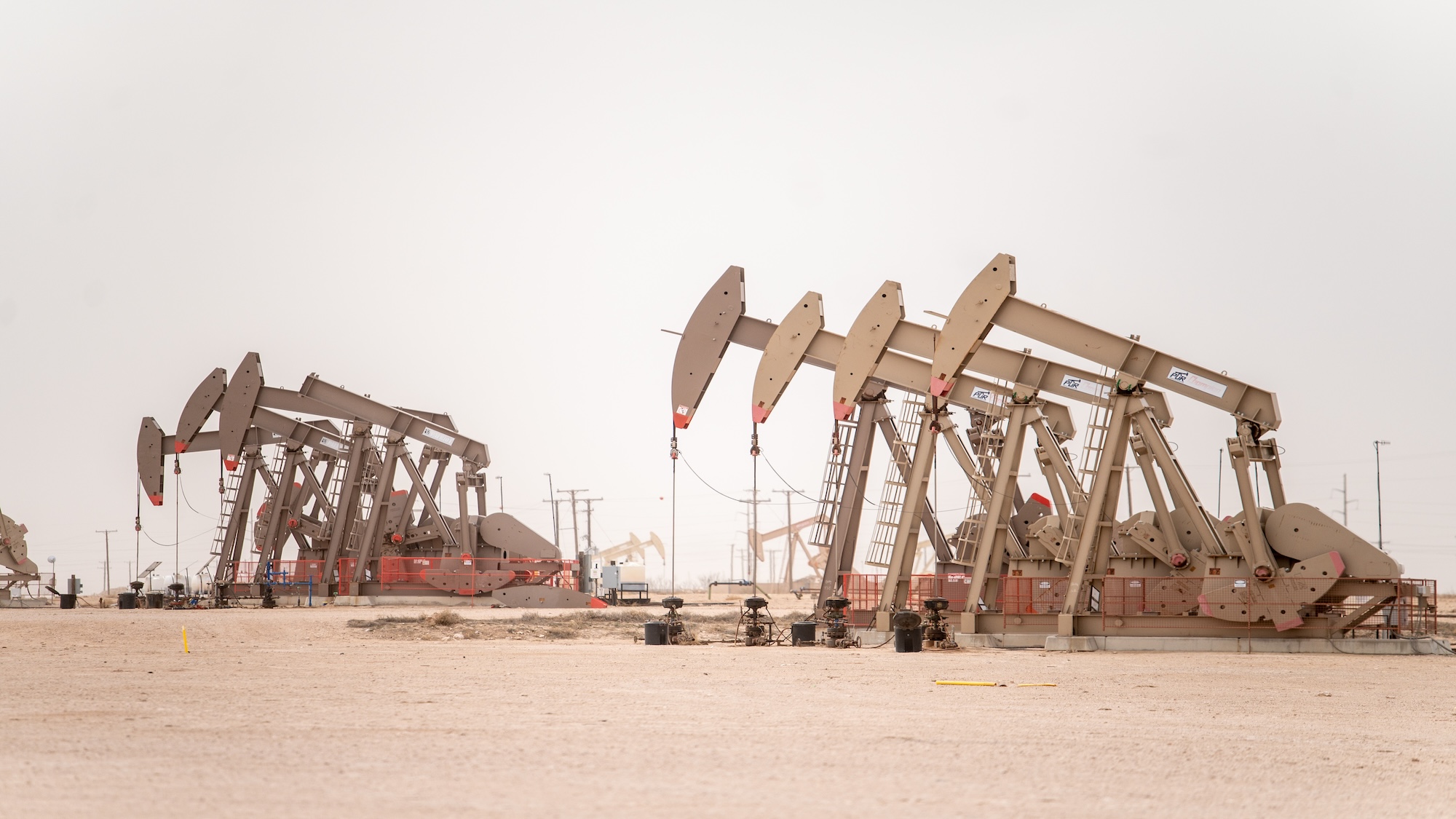Five reasons the FTSE is in 'correction'
A commodities rout is being worsened by a slowdown in China

A free daily email with the biggest news stories of the day – and the best features from TheWeek.com
You are now subscribed
Your newsletter sign-up was successful
The FTSE-100 index of leading UK companies fell for the eighth consecutive session on Thursday. It has now endured "the equal third-longest since the UK equities benchmark was introduced in 1984" and, having closed 10 per below its all-time high of 7,104 in April, is officially in "correction" territory, the Financial Times reports.
But what is causing the slump and will it continue?
1. Commodities rout
The Week
Escape your echo chamber. Get the facts behind the news, plus analysis from multiple perspectives.

Sign up for The Week's Free Newsletters
From our morning news briefing to a weekly Good News Newsletter, get the best of The Week delivered directly to your inbox.
From our morning news briefing to a weekly Good News Newsletter, get the best of The Week delivered directly to your inbox.
Global commodities have been in retreat for a while, led by oil which has fallen by more than half from its peak a year ago and is in the grip of a renewed slide. The FTSE is particularly exposed to commodities firms and miners – the Wall Street Journal says it is made up of 6 per cent "basic resources companies" and a further 13 per cent "oil and gas companies" – which the FT notes explains the underperformance compared to European markets this year.
2. China concerns
China's economy, the second largest in the world, is not growing anything like as fast as it once was or international exporters had hoped. As a voracious consumer of commodities this has added to the rout and dragged down emerging market currencies, which analysts at Societe Generale told the Daily Telegraph was creating a "death spiral" in oil and metals prices.
3. 'Risk-off' investing
A free daily email with the biggest news stories of the day – and the best features from TheWeek.com
Markets are ultimately sentiment driven and with China in meltdown – its own benchmark exchange has plummeted 30 per cent this year – and most global equities and commodities indices in the red, there has been a switch to "risk off" trading and a rush to safe havens such as gold. Selling begets selling until something materially changes investors' views.
4. Automated trading
It's not something that is being widely discussed, but we can expect automated trading to be exacerbating losses. Many brokers will use systems that sell shares when they reach pre-determined lows to avoid extending losses, but which have the effect of amplifying a selloff.
5. Greece crisis – again
Greece is back in crisis again after securing a third bailout following the resignation of Alexis Tsipras. The political upheaval will, in the view of some analysts, imperil the country's ability to honour the terms of its agreement and therefore poses a risk that the eurozone will be thrown into fresh turmoil in the autumn.
Will it continue?
The FTSE is down again in early Friday trading at 6,325, only marginally above its 2015 low in January of 6,298. Most observers maintain that the underlying fundamentals of most UK companies not exposed to China or commodities remain strong, but the wider index remains vulnerable to further shocks in the short term.
More selective strategies that avoid the sector dragging down performance are, however, producing returns. Laith Khalaf, senior analyst at Hargreaves Lansdown, told Investment Week the FTSE-100 "has returned 0.5 per cent so far this year, including dividends, but if you strip out oil and mining stocks it has returned 4.8 per cent".
-
 Bad Bunny’s Super Bowl: A win for unity
Bad Bunny’s Super Bowl: A win for unityFeature The global superstar's halftime show was a celebration for everyone to enjoy
-
 Book reviews: ‘Bonfire of the Murdochs’ and ‘The Typewriter and the Guillotine’
Book reviews: ‘Bonfire of the Murdochs’ and ‘The Typewriter and the Guillotine’Feature New insights into the Murdoch family’s turmoil and a renowned journalist’s time in pre-World War II Paris
-
 Witkoff and Kushner tackle Ukraine, Iran in Geneva
Witkoff and Kushner tackle Ukraine, Iran in GenevaSpeed Read Steve Witkoff and Jared Kushner held negotiations aimed at securing a nuclear deal with Iran and an end to Russia’s war in Ukraine
-
 How might the Israel-Hamas war affect the global economy?
How might the Israel-Hamas war affect the global economy?Today's Big Question Regional escalation could send oil prices and inflation sky-high, sparking a worldwide recession
-
 Recent mega-mergers could signal a turning point for the US oil industry
Recent mega-mergers could signal a turning point for the US oil industryTalking Point Both Chevron and Exxon have recently spent billions to acquire smaller oil companies
-
 Has Saudi Arabia lost control of oil prices?
Has Saudi Arabia lost control of oil prices?Today's Big Question Kingdom goes it alone to cut production, risking tension with US and reigniting cooling inflation in Europe
-
 US angered by Opec+ oil cut
US angered by Opec+ oil cutSpeed Read Energy prices to rise further as producers slash supply by two million barrels a day
-
 Labour shortages: the ‘most urgent problem’ facing the UK economy right now
Labour shortages: the ‘most urgent problem’ facing the UK economy right nowSpeed Read Britain is currently in the grip of an ‘employment crisis’
-
 Will the energy war hurt Europe more than Russia?
Will the energy war hurt Europe more than Russia?Speed Read European Commission proposes a total ban on Russian oil
-
 Will Elon Musk manage to take over Twitter?
Will Elon Musk manage to take over Twitter?Speed Read The world’s richest man has launched a hostile takeover bid worth $43bn
-
 Shoppers urged not to buy into dodgy Black Friday deals
Shoppers urged not to buy into dodgy Black Friday dealsSpeed Read Consumer watchdog says better prices can be had on most of the so-called bargain offers